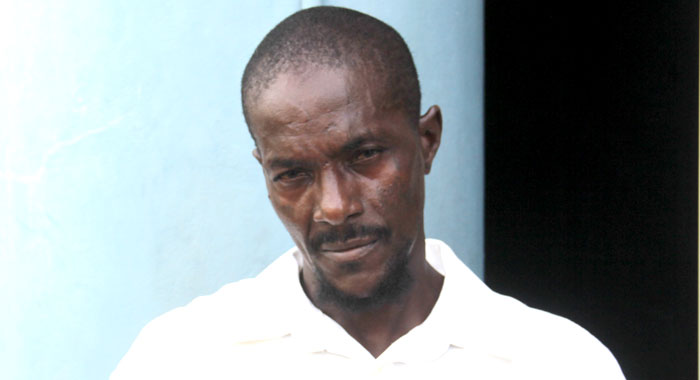A man who was tried at the Kingstown Magistrate’s Court on a charge of giving contradictory evidence in a court proceeding has been found guilty and ordered to pay a fine of EC$2,500 by June 30 or go to prison for one year.
Senior Magistrate Rickie Burnett handed down the sentence on Zarri Layne, 40, of Sion Hill last week Tuesday, Jan. 30, after finding him guilty of the charge the previous week.
Layne aka “Shines” was charged that on July 2, 2018, at Kingstown, being a witness in judicial proceedings before the High Court, he made a statement on oath, to wit, “me na see e man face, me na see him”, which contradicts in a material detail, a previous statement made on oath before the Serious Offences Court, to wit “at the shop I was seeing his entire body everything, yes I saw him with my own eyes” with intent to deceive.
Layne was a witness in the case of the Queen v. Emron Jones, which was tried at the High Court in July 2018.
Layne was a friend of the virtual complainant, Enrico Jack, and was present during an incident in which Jones shot Jack sometime in 2013 at a shop in Murray’s Village.
Layne gave the police a statement identifying the shooting, saying he had seen the assailant’s face and gave similar evidence during the preliminary hearing at the Serious Offences Court.
But when the trial was held at the High Court, Layne said that he had not seen the shooter.
The Crown’s case, led by prosecutor Police Constable Corlene Samuel, was that Layne changed his evidence after learning that the virtual complainant and the shooter were related and there were efforts by relatives to settle the matter out of court.
Jones was convicted and jailed for his crime.
Layne, who was represented by counsel Grant Connell, argued at his trial that he changed his story because he had been threatened, a defence which the court disbelieved.
In mitigation at the sentencing, Connell told the court that Layne is a father of four and the main breadwinner for his household.
The lawyer said that his client expressed extreme remorse for his action, adding that from the inception, Layne indicated that he had acted under duress and had to make a judgement call when he gave the contradictory evidence.
Connell argued that Layne’s action did not have “a corrosive effect” in the High Court matter as the accused was still convicted.
The maximum penalty for Layne’s offences is seven years in prison and the senior magistrate told the lawyer that the court had to bear in mind that parliament had prescribed such a penalty.
Connell said that the law was saying that Layne’s offence was on par with possession of a pound of marijuana.
“That is the current law that the court has to pay attention to,” Burnett, however, responded.
Connell asked that the court suspend any custodial sentence that it was considering for his client.
The lawyer said that while his client was “no virgin to the law”, the extant case was at variance with his previous convictions.
Connell argued that Layne was not the first person who went to court and change his evidence.
In response, the chief magistrate said that it seemed that the prosecution wanted to send a message.
Connell argued that that message could be that witnesses must hold the state’s case “or else”, adding that Layne was not offered any protection.
In her submissions to the court, the prosecutor noted the maximum sentence in the case, adding that Layne would not benefit from a one-third discount for a guilty plea.
Samuel said that Layne never informed police or any state authority about his claim that his life had been threatened, hence he was not offered protection.
Samuel said that what the prosecution did was to send a strong message: that there are avenues and things in place that persons can tap into.
“Society as we know it at this time, there is a lot going on and without witnesses, cases won’t be solved,” she said.
She, however, said that the justice system cannot allow people to think they can just change their evidence in court, get a suspended sentence then laugh at the court.
The prosecutor asked the court to impose a custodial sentence.
Layne had initially pleaded guilty to the charge when he was arraigned at the Kingstown Magistrate’s Court on July 4, 2018.
He, however, changed his plea to not guilty ahead of his sentencing.
Connell, who was not Layne’s lawyer at his arraignment, had intervened on the man’s behalf in July 2018 and later represented him at his trial.
Layne testified in his own defence.
The prosecution’s witnesses were Crown Counsel Karim Nelson, who prosecuted the matter in which Layne changed his evidence, Sergeant Rudolph Bartholomew of the Criminal Records Office, Police Constable Terry Phillips, who arrested Layne after he changed his evidence and investigated the matter and Kenroy Questelles — who Layne had alleged had threatened him in connection with the case.







Grant Connel is again us at it, his explanations sometimes defiles logic and common sense. Where is the reasonable thinker as required by law?